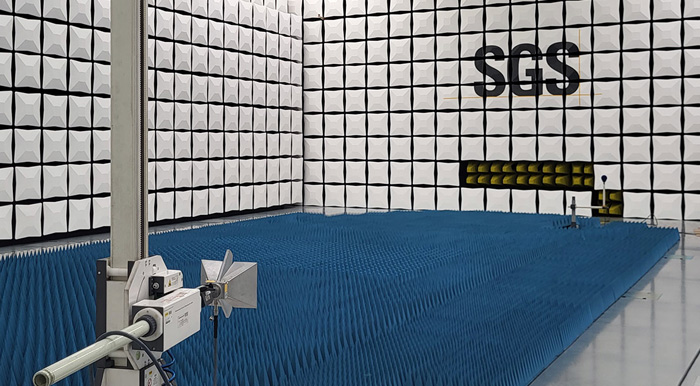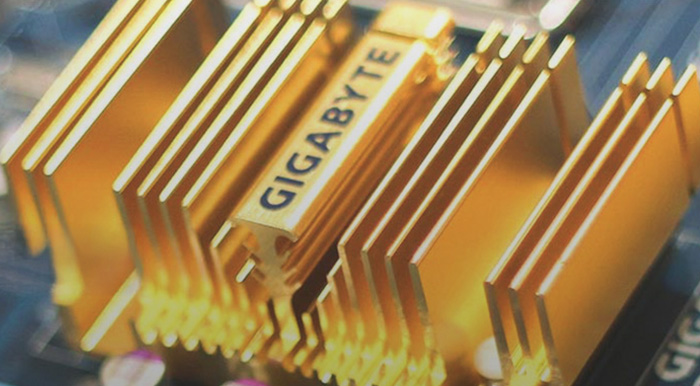In the context of classical EMC product testing, the focus is essentially on ensuring that devices and systems function satisfactorily in their electromagnetic environment. However, when it comes to safety-related systems (for example, industrial processes, robotic systems, etc.), the issue of functional safety also becomes important. Functional safety is safety from hazards resulting from the (faulty) functioning of a device. In this context, the aim is to prevent electromagnetic interference from impairing the safety function(s) and, as a consequence, from causing an unacceptable risk of damage to persons and/or the environment.
The basis for the normative relationship of EMC with functional safety is EN 61000-1-2: “Methodology for the achievement of functional safety of electrical and electronic systems including equipment with regard to electromagnetic phenomena.” This standard contains, among other things:
- Steps to achieve functional safety with regard to EMC
- Management of EMC with regard to functional safety
- EMC aspects of the design and integration process
- Test philosophy for safety-related systems
In this context, EN 61000-1-2 contains a large number of references to the EN 61508 series of standards, which is the basic standard for the evaluation of safety functions.
Other important standards on EMC and functional safety in this context include:
- EN 61326-3-1: Immunity requirements for safety-related systems and for equipment intended to perform safety-related functions (functional safety) – General industrial applications
- For applications other than industrial, EN 61326-3-2 may be applicable.
- EN 61000-6-7: Immunity requirements for equipment intended to perform functions in a safety-related system (functional safety) in industrial locations
The product standard EN 61326-3-1 is relevant for systems according to the scope of EN 61326-1 for process controls, I&C equipment, etc. As is generally the case in EMC, the generic standard EN 61000-6-7 is typically applied when there is no suitable product standard.
EN 61326-3-1 does not stand alone in the application but must be considered and tested in conjunction with the requirements from EN 61326-1. EN 61326-1 contains the corresponding requirements with regard to interference emission and interference immunity with the limit values, test levels, and interference criteria (A, B, C) defined there in “normal” operation. However, the interference thresholds required here do not take into account extreme cases that can occur – albeit with an extremely low probability of occurrence – at any location.
For this reason, EN 61326-3-1 specifies additional requirements for systems and devices in industrial applications that are intended for safety functions in accordance with IEC 61508. Essentially, increased requirements involve higher test levels. For example, 20 V/m instead of 10 V/m for field influence, a burst of 3 kV instead of 2 kV, and a surge of 4 kV instead of 2 kV. Furthermore, additional tests such as LF influence according to EN 61000-4-16.
Additional information on this topic can be found in our white paper “EMC in connection with functional safety”.
In our accredited EMC laboratory in Munich, we are also equipped for higher test levels to cover your requirements. The following test facilities are available to you, among others:
- 5 absorber lined chambers incl. 10 m chamber for test samples and vehicles up to 35 t/m2 and 12 m length for emission measurements up to 40 GHz and immunity up to 600 V/m
- 3 shielded measurement cells
- Harmonics / flicker and voltage interruptions 3-phase up to 75 A/phase
- Overvoltage tests up to 10 kV / 10 kA incl. ITU-T (CCITT)
- Automotive pulse measurements
- ESD tests up to 30 kV
- Various test equipment for high-voltage systems incl. ISO/DTS 7637-4 and surge/burst on DC up to 1,000 V/100 A
Contact
Armin Hudetz
t: +49 89 78 74 75-133
E-Mail: This email address is being protected from spambots. You need JavaScript enabled to view it.
Customer Service Team
t.: +49 89 78 74 75-222
E-Mail: This email address is being protected from spambots. You need JavaScript enabled to view it.


